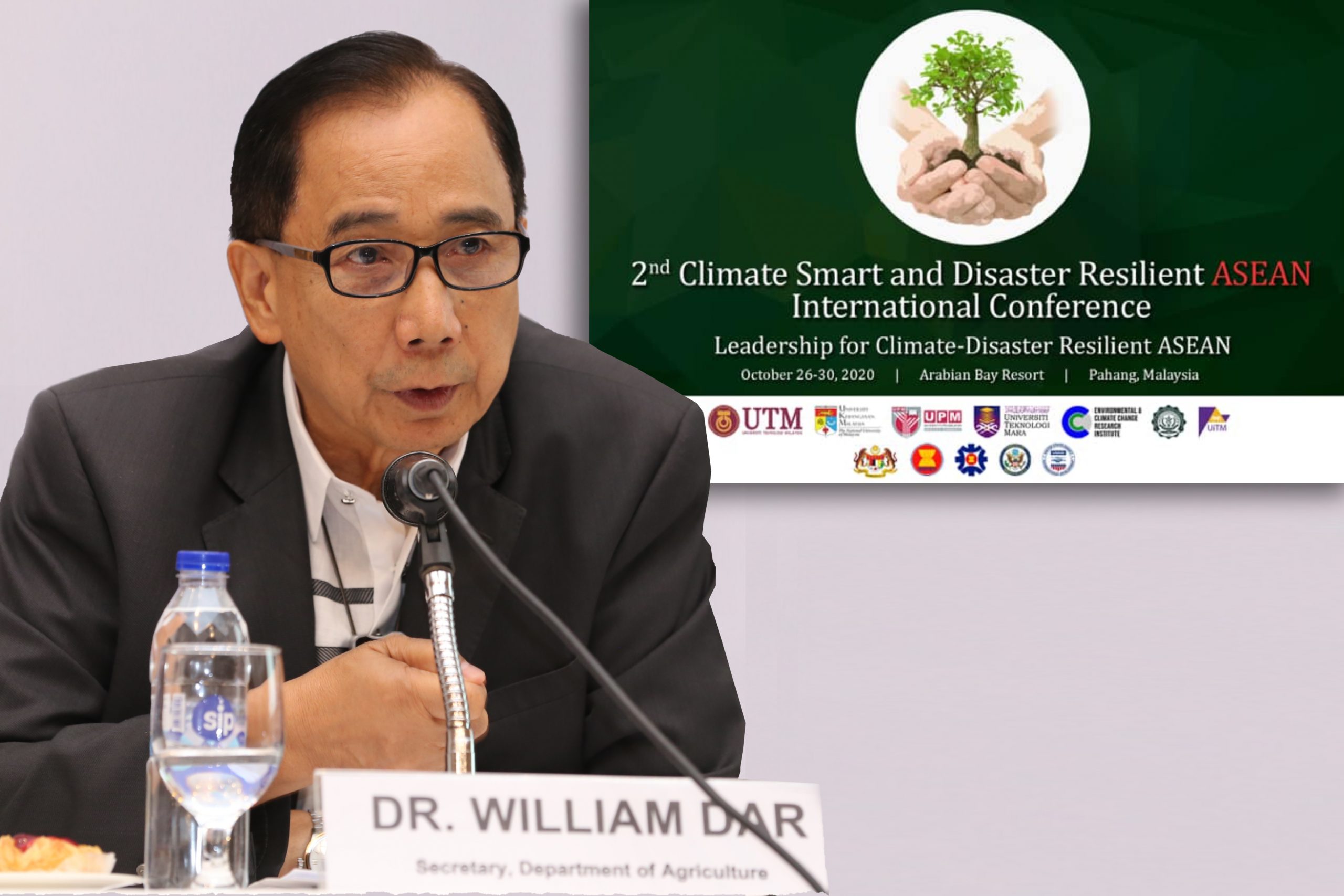
As the Philippines and other Southeast Asian countries are frequently visited by typhoons and experience extreme weather phenomena, Agriculture Secretary William Dar enjoined fellow ASEAN members to work together in building a strong, resilient, and sustainable agriculture and fishery sector to withstand adverse effects of climate change.
“The effects of climate change, along with the destruction caused by natural disasters, make it more difficult to ensure food security an ever-growing population in the ASEAN region, which is expected to rise by 1.6 percent annually,” said Secretary Dar during the “2nd Climate-Smart and Disaster-Resilient ASEAN Virtual International Conference” on October 26, 2020, hosted by Malaysia.
With the huge impact of climate change on food and agriculture, he shared with his colleagues the Philippines’ experience and interventions, specifically programs of the Department of Agriculture (DA) in response to climate change.
“We have put in place a program, called the Adaptation and Mitigation Initiative in Agriculture (AMIA) to ensure that our resources and capacities are supporting climate-resilient agriculture or CRA. We are leveling-up from building resilient livelihoods and communities to CRA enterprises in towns, provinces, or regional scales,” he said.
“That is why we have institutionalized the CRA Office to ensure that climate change adaptation and disaster risk reduction (CCA-DRR) are mainstreamed in our plans, programs, and activities,” the DA chief added.
He said the DA is scaling up its gains from AMIA using science-based decision support tools for vulnerability assessment, investment targeting, farm-fishing operations, and better planning for infrastructure, finance and insurance, research and development, regulations, and extension support.
“The pandemic has shown us the need to strengthen regional cooperation in maintaining a robust food system that is compliant with the health quarantine restrictions. Strengthening the ASEAN food system will further promote trade, shorten food value chain, reduce transport costs, and reduce risks from impacts of climate change and other natural disasters,” he said.
He suggested that the ASEAN Integrated Food Security (AIFS) framework be expanded and to continue working on the food safety standards harmonization.
The DA chief also suggested other possible areas of collaboration in ASEAN, namely:
- establishment of regional disaster insurance system;
- development of technologies to reduce carbon footprint in compliance with the Paris agreement;
- development of food production systems in urban settings; and
- institutionalization of social protection and welfare programs for farmers and fisherfolk.
He said the collective efforts will be futile if the ASEAN member-countries do not commit to act and implement the interventions.
“We call on everyone to work together to help alleviate our peoples’ plight, particularly in the agriculture and fisheries sector, who are most vulnerable. Climate change is a global phenomenon so it must be addressed inclusively. If member-nations don’t commit to climate action, our children will be the ones to suffer in the future,” he concluded.
The conference serves as a trans-disciplinary platform to share experiences and research results on climate change and disaster risks in South East Asia. It was participated by international leaders, scientists, experts, decision-makers, and members of the private and development sector. ### (Rita dela Cruz, DA StratComms)













